Fritextsökning
Artiklar per år
Innehållstyper
-

Neanderthal gene variants may cause Viking disease
A new study suggests that the so-called Viking disease, which affects the hand function in many older people, may be linked to gene variants inherited from Neanderthals.
-

Lucy Robertshaw: Artificial intelligence – is this really going to transform a patient’s life?
In a column Lucy Robertshaw reflects on how AI and new regulations will affect healthcare, innovation and the lives of future patients.
-

Gothenburg-based company acquired by Norwegian diagnostics group
Gentian Diagnostics acquires Gothenburg-based Getica.
-

Boule värvar från Oncopeptides
Boule Diagnostics rekryterar Holger Lembrér som ny finanschef. Han tillträder i januari 2024.
-

Anna Törner: The minute between life and death
“I have never told anyone about this day that happened more than 20 years ago. But I sometimes reflect on what happened, on what might have happened. When I try to understand why I haven’t told anyone, I find the answer: a feeling of shame. There is no forgiveness for something like this, even though it is very human to be distracted for a moment,” Anna Törner writes in a column.
-

Novo Nordisk invests billions in expanding its production capacity
Danish pharmaceutical company Novo Nordisk is making a major investment to develop and expand its production facility in Hillerød, north of Copenhagen. DKK 15.9 billion, equivalent to almost SEK 25 billion, is being invested over six years.
-

AstraZeneca moves to brewery quarters in central Copenhagen
AstraZeneca in Denmark is moving its business into central Copenhagen and the old brewery quarters in Carlsberg Byen.
-
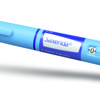
Nanexa develops depot formulation of the diabetes and obesity drug Saxenda
Uppsala-based company Nanexa has signed an agreement with a German contract research company to start a clinical study with a monthly depot of liraglutide. The drug is currently approved for the treatment of diabetes and obesity.
-
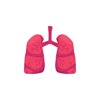
Nanoparticles to help detect pulmonary disease
Nanoparticles behave in a certain way in the air. Using this knowledge, researchers at Lund University have developed a new measurement method for lung examinations based on the phenomenon.
-

Han blir Chalmers nya rektor
Martin Nilsson Jacobi har utsetts till ny rektor och vd för Chalmers tekniska högskola. Han är idag vd för Chalmersstiftelsen och har en lång bakgrund inom lärosätet.
-

Vicore tar in en halv miljard inför studie i lungfibros
Vicore Pharma tillförs en halv miljard kronor i en riktad nyemission. Syftet med kapitaltillskottet är att kunna fortsätta utvecklingen av bolagets behandlingar mot svåra lungsjukdomar.
-

Rapid developments in AI – “All stakeholders are struggling to understand it”
Artificial intelligence is being discussed more and more, and developments in the field are moving rapidly. As the Swedish Medical Products Agency testifies, keeping up with developments is not easy.
-

Så mycket tjänar ingenjörer inom life science
Ny lönestatistik från fackförbundet Sveriges Ingenjörer visar att ingenjörer inom life science hamnar på en nionde plats när medellönerna för ingenjörer inom olika branscher listas.
-

Norwegian company wins bidding battle for Sensidose
The lengthy battle to acquire medical device company Sensidose is apparently over. Generic medicines company EQL Pharma is pulling out, selling its shares and leaving the way open for Norwegian company Navamedic.
-

Anna Törner: Minuten mellan liv och död
”Jag har aldrig berättat för någon enda om den här dagen för mer än 20 år sedan. Men jag tänker ibland på vad som hände, på vad som kunde ha hänt. När jag försöker förstå varför jag inte berättat för någon landar jag i känslan skam. Det finns liksom ingen förlåtelse för något som detta, även om det är högst mänskligt att distraheras ett ögonblick”, skriver Anna Törner i en krönika.
-

Samuel Lagercrantz: The government’s performance in healthcare and life sciences so far
Since the change of government in Sweden, developments in the healthcare sector have shown promising signs, but the outlook in life sciences is less promising, writes Samuel Lagercrantz in an editorial.
-
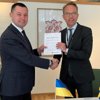
Swedish and Ukrainian Medical Product Agencies sign an agreement
The Directors-General of the Swedish and Ukrainian Medical Products Agencies have signed a cooperation agreement.
-
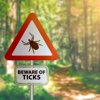
The first Lyme disease vaccine faces a delay
Pfizer and Valneva’s Lyme disease vaccine, which could be the first of its kind, is facing delays of about a year. The reason is problems at trial sites in the United States, which have forced the companies to drop half of the participants in an ongoing Phase III study.
-
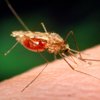
A new malaria vaccine offers hope but much more research is still needed
There has long been no vaccine against malaria, but there have been breakthroughs in recent years. However, it is still unclear how we become immune to the malaria parasite, and this is a vital piece of the puzzle for creating effective vaccines, says malaria researcher Kristina Persson.
-

Study: Chat GPT is more empathetic than doctors
The AI tool Chat GPT is not only more accurate when it comes to answering patient questions – the chatbot is also perceived as almost 10 times more empathetic than real doctors, a new study reveals.
-

Looking for greater Nordic cooperation – “We have Norway and Finland in our sights”
How can Medicon Valley Alliance bring the big pharmaceutical companies back to the organisation? Life Science Sweden discussed this topic and others with the cluster organisation’s new radar pair.
-

Så vill Swelife stärka svensk life science
Den svenska life science-strategin behöver uppdateras inom både prevention av ohälsa och utveckling av precisionsmedicin. Den slutsatsen drar Swelife i en ny rapport, där man gång på gång efterlyser ett tydligare ledarskap.
-

New report: Fewer PhDs in life sciences
A new report from Vinnova suggests that competency returns in the life science sector are declining.
-

Confidence in childhood vaccines is in decline worldwide
Since the pandemic, confidence in vaccinating children has plummeted. In a new report, UNICEF urges world leaders to act before the situation worsens. In 52 out of 55 countries surveyed, public perception of the importance of vaccinating children has declined.